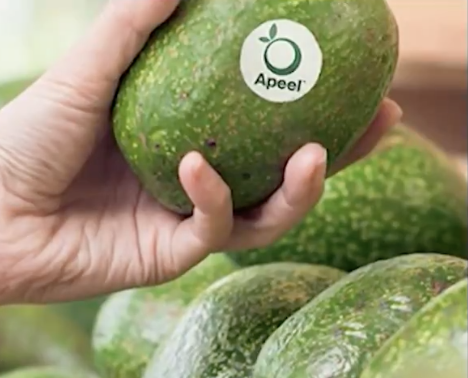We have covered aPEEL before*, now news of its widespread application is creeping into the wider media world. Designed to keep food fresher for longer (interpreted below as preserving rotting produce) aPEEL, as a start-up company received funding from the Bill and Melinda Gates Foundation, although it is not owned by Gates. Its intentions are noble – we should cut waste – but the chemicals come with red flags.
Apeel Sciences has developed a plant-based coating called Edipeel, designed to extend the shelf life of fruits and vegetables by slowing water loss and oxidation. This coating, which is applied to produce, is intended to be edible and cannot be washed off. The product has raised…
— Moot (@NCStudiosinc) June 26, 2024
COMPANY STATEMENTS
The product, Edipeel, is described as a way of prolonging the freshness of produce and as “an edible postharvest coating” (www.apeel.com/how-apeel-works), (here). Its ingredients can be seen (here).
Lauren Sweeney, vice president of marketing operations and commercial strategy at Apeel Sciences (here), said the coating is “perfectly safe and meant to be consumed as a part of the extra protective layer on your favorite fruits and vegetables.”
Save money and your health by growing your own. (No weeds!)
Better to grow your own, or buy local than eat chemicals we know little about. Produce is very expensive right now so if you’re on a budget – and health conscious – it really is time to be self-reliant and grow you own greens in micro gardens. Balcony apartments can produce enough veggies for a family. No balcony? Try a stacking garden by a window or on a table or use your fire escape.
Tips
1. Grow what you love, but consider growing expensive vegetables to save costs.
2. Focus on vegetables that can be harvested multiple times, such as lettuces, basil, parsley, coriander, and other herbs and leafy greens.
3. Use succession crops like beetroot and radishes to maximize space and yield.
4. Plant garlic between other vegetables to save space.
5. Train sprawling plants on fences or let them trail across the ground to keep them out of the way.
6. Consider growing vegetables through the winter by planting them in August or September.
7. Top up with compost or amend with fertilizer, such as chicken manure pellets, for next year’s crops.
8. With a little more time investment and smart planting, you can significantly increase your savings.
*
